El-Hafeed (The Grandchild) is one of the most popular 70s Egyptian movies. I watched the movie years ago when I was a kid and I remember loving it, but I couldn’t recall any details about the plot or the sequences until I decided to watch it again.
Upon rewatching, I started to recall this nostalgic feeling of the winter nights and the family gatherings in front of Rotana Zaman. I guess that’s one of the reasons why our generation still feels connected to these movies.
What grabbed my attention besides the sweet and warm feeling of nostalgia, are the progressive ideas that the film discussed. Some of these ideas are very controversial topics today. Taboos that we desperately need to provide an open dialogue for nowadays.
The movie tells an everyday story of a typical family from that era. The plot depends on issues that occupied ordinary people’s minds back then. With married couples fighting for their modern thoughts regarding parenting and family, against the radical thoughts mirrored through their mother, Zeinab (Karimah Mukhtar).
A well-knit and strong family, with each individual having their own struggle within society. The father is a hardworking middle-class man who struggles financially but guides his family with stability and wisdom.
Here are some of these conversations, and that’s just scratching the surface!
1) Being an understanding and respectful partner
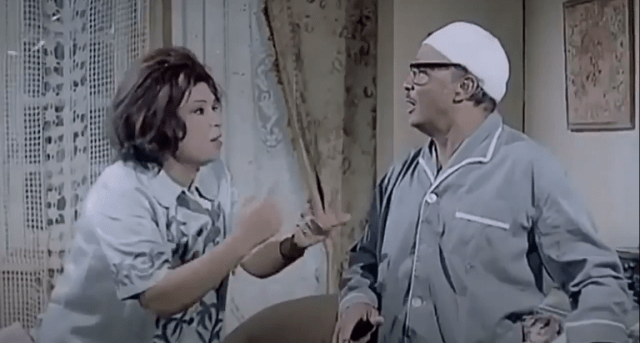
As simple and idealistic as that sounds, it is actually not easy to apply to your relationship on an everyday basis. The film portrayed this idea perfectly through structuring very unique dynamics between each married couple in the movie. In fact, each couple is different and they need to understand their communication techniques while sticking to basic principles. Such as: being respectful, compassionate, understanding and patient.
Every dialogue between Hussein and Zeinab reflects the patience and understanding aspect we mentioned above. Zeinab always needs to make family gatherings and provide so much food. On one side, Hussein (Abdel-Moniem Madbouly) is financially stressed and he expresses this very clearly, but on the other side, he understands how much it means for his wife to throw family gatherings and feed the family. Eventually, these arguments draw a middle ground.
2) Respecting your children’s privacy and working to guide them from a distance while preserving the required caregiving
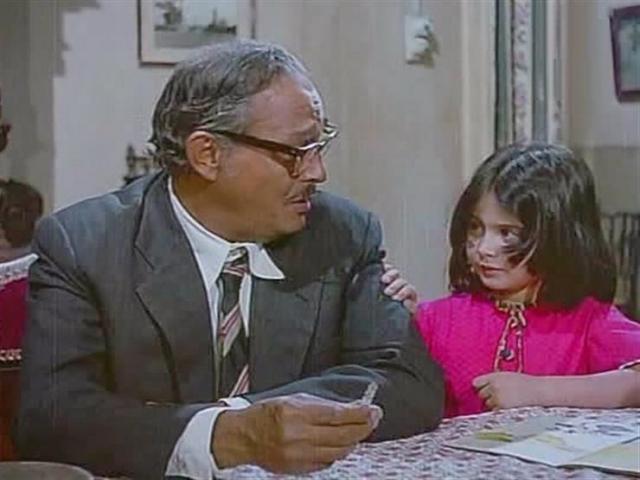
The way Hussein approaches his children through an aura of guidance and support rather than an aggressive one, represents a very thoughtful idea that a father figure should raise children based on free thinking and the ability to conduct logical conversations where their thoughts are respected.
This can be especially seen when the two boys want a new TV but Hussein cannot afford it. Although he starts the conversation with a curt rejection, he ends up with a compromise where he will split the price of the television with his wife and kids. It’s a lesson in teaching our children responsibility while giving them what they want. A lesson in that it conducts a respectful and equal conversation that achieves a satisfying middle ground.
3) Respecting kids’ opinions by acknowledging them

This is clearly showcased between Hussein and his children within conversations, particularly the conversations he has with his middle daughter, Sawsan. While she is a very talkative and smart girl, she also conducts a respectful and mature relationship with her father. The way in which he acknowledges her opinions and expressions are just quite ahead of its time.
This can be further examined with the scene where Sawsan wants to go watch TV at the neighbor’s house, but the mother refuses so she goes to her father who refuses in support of the mom’s decision. Sawsan, as mischievous and saucy as she is, asks her father to man up so people won’t think that he has no word in this house. This comment is powerful even though it is cut through with sarcasm but the meaning behind this statement rings true in a scathing manner that doesn’t typically let the comment pass by easily like unconventionally Huessin did.
4) Having a girlfriend and letting teenagers mingle
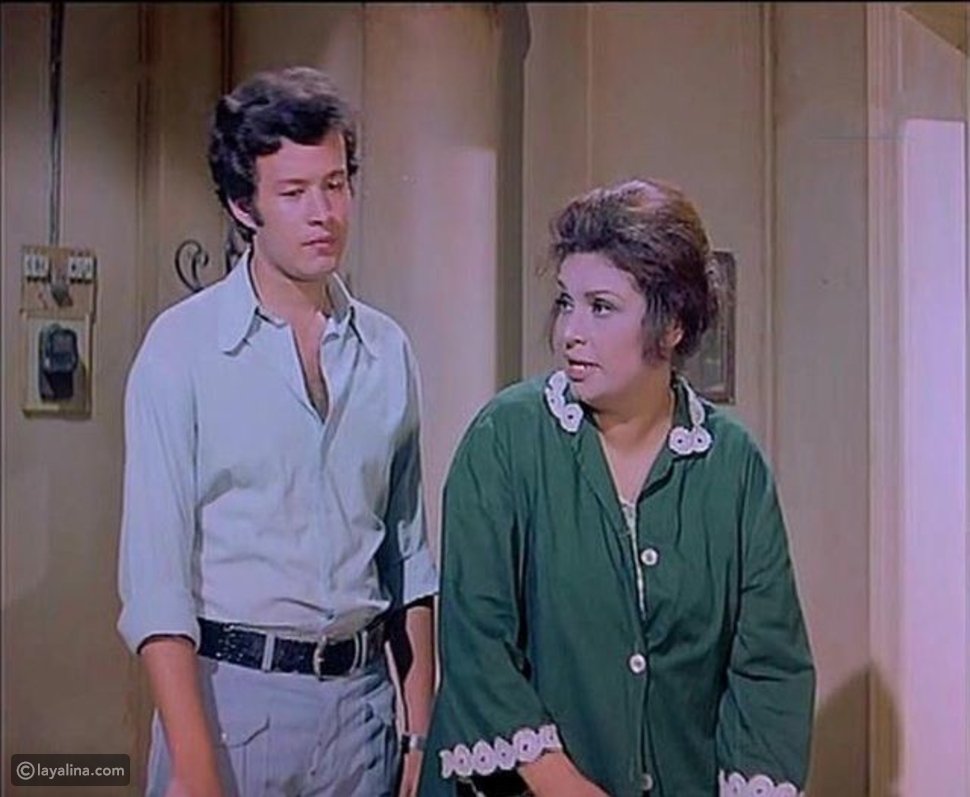
When Samy’s girlfriend comes to visit him home and the mother, rages and states her radical thoughts of the concept of friendship between men and women, the father then says the most insightful line:
“Even if they are more than friends, Zeinab, it’s better for everyone that they meet here under our supervision than meeting away from our sight.”
The mixed gendered friendship mentality remains taboo today, though it was discussed most delicately and thoughtfully about 5 decades ago.
5) Early parenting
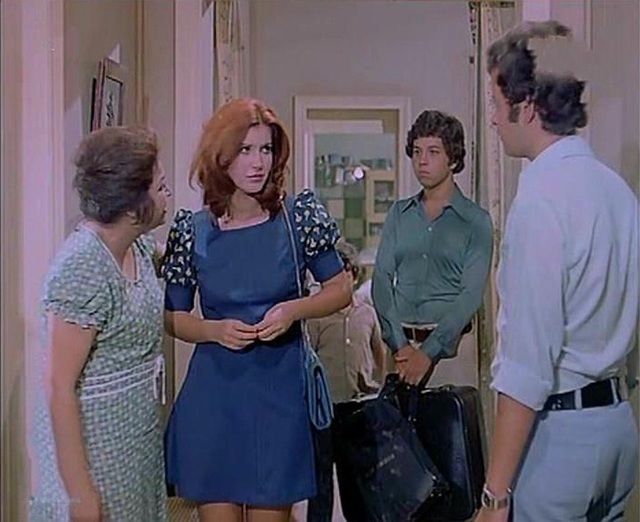
One of the most progressive ideas that the movie discussed is early parenthood. The young married couples in the movie actively choose not to be parents until they’re fully ready. The ‘unconventional’ views that the mother held at the time fought the notion strongly; it still did manage to break the oath between the married couples by pushing the daughters into pregnancy. However, the very portrayal of the idea is quite admirable.
6) Acknowledging the overpopulation crisis
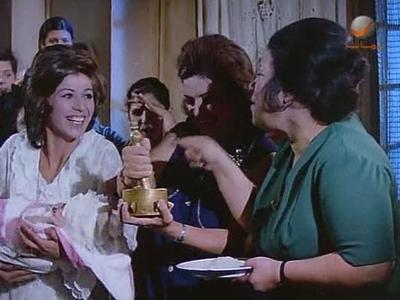
While living the overpopulation crisis in Egypt today, it astonished me that El-Hafeed tackled this issue back then. The Egyptian educated community had clear insights and fears of their future outcome. Insights that were well-known and well-portrayed in the movie through blatant support of contraceptives.
Of course, these attempts to control the population did not end up with good results, as the population reached more than 100 million people in Egypt today and here we are facing the horrible consequences very clearly.
7) Getting an abortion
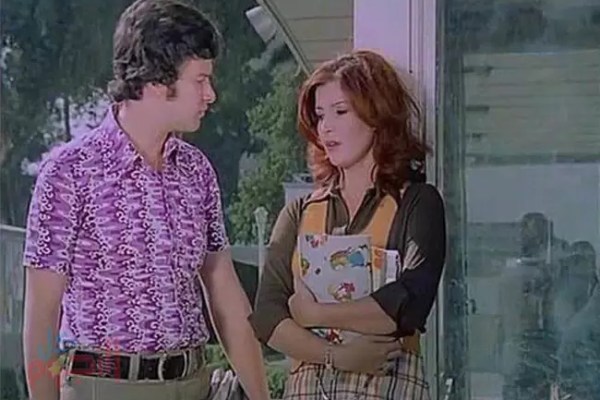
Perhaps, this idea was not discussed clearly as a choice owned by women only, but when Nabila (Mervat Amin) attempts an abortion, dangerously, the film never condemns her personally. Yet, it sympathizes with her pain and focuses on the reasons that push her to see this decision as to the only choice.
8) Being a government middle class clerk and able to afford such life and mentality
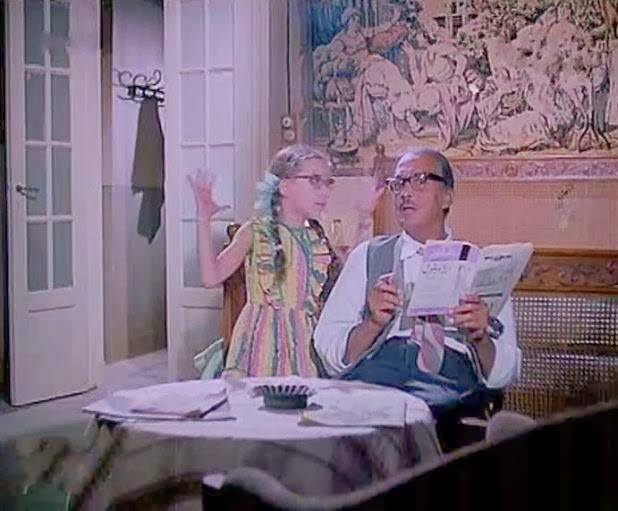
It is necessary that we celebrate the genius character, Hussein, the father who was played by the magnificent star Abdel-Moniem Madbouly. This character was well-structured in the writing process and perfected by the outstanding performance of Madbouly, who combined the seriousness and sensibility of the Egyptian father with the comedy in all the right places.
Being a middle-class clerk in the government who can afford to have a progressive and liberal mentality shows how much we lost in the structure of the Egyptian community today.
Look at our society’s morality and mindset today, through diving into social media comments on posts that discuss women and minority rights, you will see how far away we went back in time rather than going forward.
El-Hafeed is a crucial film across various generations that is bound to teach you a lesson or two about something that is significantly lacking from our current society.


